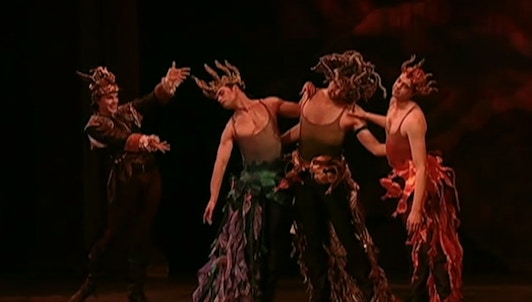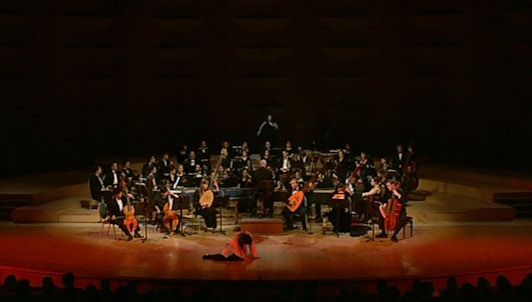Music from "The Golden Age of the King's 24 Strings" recently echoed at the Chateau in Versailles.
That it's got to do with Louis XIV is easy to guess, but who were the "King's 24 Strings"?
As the instruments were being tuned, conductor and acclaimed harpsicordist Skip Sempé told us about it.
"Tonight's concert is based on the orchestra which in the 17th century had the reputation of being the greatest orchestra in Europe. It was the orchestra of Versailles, which was formed and conducted by Lully, who was the great court composer of Versailles."
In that orchestra – the first permanent one in Europe – the King's 24 Strings enjoyed enormous prestige. They thrived for over 150 years, until Italy took the lead in the musical world, in the mid-18th century.
With it ensued the disappearance of a few string instruments, similar to the viola, but not quite the same; they were all replaced by their modern counterpart, the viola. Paradoxically enough, it's this instrument which is used today to play French Baroque music, the very music enjoyed at the court of the 'Roi Soleil'! Sylvestre Vergez has been getting used to playing it. He told us:
"In today's symphonic orchestra you have cellos, violas and two parts of violins, but in Lully's time there were five parts altogether – violins, violas, violas, violas, and cellos. There were three particular types of viola at the time."
The Centre of Baroque music in Versailles has decided to bring those 'special' violas back to life. One of them is the 'quinte de violon', which is Sylvestre Vergez's instrument.
"The sound is like a viola. We know that at the time they could use a strap, or they hooked it to a button on their costume."
For conductor Skip Sempe, playing instruments of a bygone era brings with it unique challenges. "French Baroque music has a very rich, unknown repertoire; it requires special instruments, very special performers who have a sort of a sense of adventure, which is not the sense of adventure that the everyday classical musician has," he says.
As a musician who plays one, Sylvestre agrees: "When these instruments were recreated, two years ago, nobody knew how to play them. Volunteers were needed. 'Who wants to play?'. I said: 'ok, I'll try!'"
As for the music itself, Skip says:
"The music hasn't aged at all since 1600, 1700; the musicians don't think it's aged, the public don't think it's aged, so, basically, it's still something that's alive, even if it has to be recreated – but we do it!"
In this story you can hear the Passacaille, by Jean-Baptiste Lully, from Armide, and fragments from Simphonie-Sarabande, by Georg Muffat, from Impatentia.
http://www.euronews.net/ 
